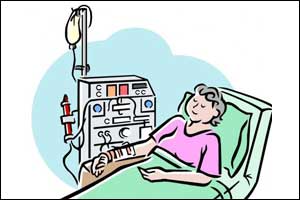- Home
- Editorial
- News
- Practice Guidelines
- Anesthesiology Guidelines
- Cancer Guidelines
- Cardiac Sciences Guidelines
- Critical Care Guidelines
- Dentistry Guidelines
- Dermatology Guidelines
- Diabetes and Endo Guidelines
- Diagnostics Guidelines
- ENT Guidelines
- Featured Practice Guidelines
- Gastroenterology Guidelines
- Geriatrics Guidelines
- Medicine Guidelines
- Nephrology Guidelines
- Neurosciences Guidelines
- Obs and Gynae Guidelines
- Ophthalmology Guidelines
- Orthopaedics Guidelines
- Paediatrics Guidelines
- Psychiatry Guidelines
- Pulmonology Guidelines
- Radiology Guidelines
- Surgery Guidelines
- Urology Guidelines
Antipsychotics not effective in ICU delirium

Antipsychotic medications that have been used for the treatment of delirium in intensive care units (ICUs) for more than four decades are not benefiting critically ill patients, according to a new study published in the New England Journal of Medicine.
E. Wesley Ely, professor of Medicine at Vanderbilt University School of Medicine, and colleagues conducted this large, multi-site MIND USA (Modifying the INcidence of Delirium) study to answer whether typical and atypical antipsychotics -- haloperidol or ziprasidone -- affected delirium, survival, length of stay or safety.
"We found, after extensive investigation with medical centers all over the country, that the patients who get these potentially dangerous drugs are not experiencing any improvements whatsoever in delirium, coma, length of stay or survival," said Ely.
Also Read: Limiting level of anaesthesia does not reduce postoperative delirium: JAMA
For the study, the researchers screened nearly 21,000 patients at 16 U.S. medical centers. Of the 1,183 patients on mechanical ventilation or in shock, 566 became delirious and were randomized into groups receiving either intravenous haloperidol (192), ziprasidone (190) or placebo (184).
Key Findings:
- There was no significant difference in duration of delirium or coma among participants on haloperidol or ziprasidone compared to placebo.
- There were no significant differences among participants on either antipsychotic medication compared to placebo in 30-day and 90-day mortality or time on the ventilator, or in the ICU and hospital.
Also Read: Ramelteon decreases Delirium and duration of ICU Stay
"Every day, there are many thousands of patients receiving unnecessary antipsychotics in the critical care setting that are bringing risk and cost without benefit with respect to the outcomes measured in this NIA-sponsored MIND-USA study," Ely said.
Ely's companion ICU Liberation Collaborative investigation, released today by the Society of Critical Care Medicine, details how to streamline the best way to care for critically ill patients in the ICU by using the ABCDEF Bundle.
The study followed 15,000 patients at 70 medical centers across the United States and found that higher performance of the ABCDEF bundle saved lives, reduced length of stay, reduced delirium and coma, hospital readmissions and made patients less likely to be transferred to nursing homes, Ely said.
"In the ICU Liberation Collaborative investigation, we used a safety bundle much like what your airplane pilots use to help you get safely to your destination," Ely said. "We try and provide the least amount of sedation to keep people safe and comfortable in the ICU while also managing their delirium, involving their families, getting them mobilized and walking around. ICU teams all over the world are working together to create a new culture of critical care for patients and families."
"The use of haloperidol or ziprasidone, as compared with placebo, in patients with acute respiratory failure or shock and hypoactive or hyperactive delirium in the ICU did not significantly alter the duration of delirium," concluded the study authors.
For further reference follow the link: 10.1056/NEJMoa1808217

Disclaimer: This site is primarily intended for healthcare professionals. Any content/information on this website does not replace the advice of medical and/or health professionals and should not be construed as medical/diagnostic advice/endorsement or prescription. Use of this site is subject to our terms of use, privacy policy, advertisement policy. © 2020 Minerva Medical Treatment Pvt Ltd